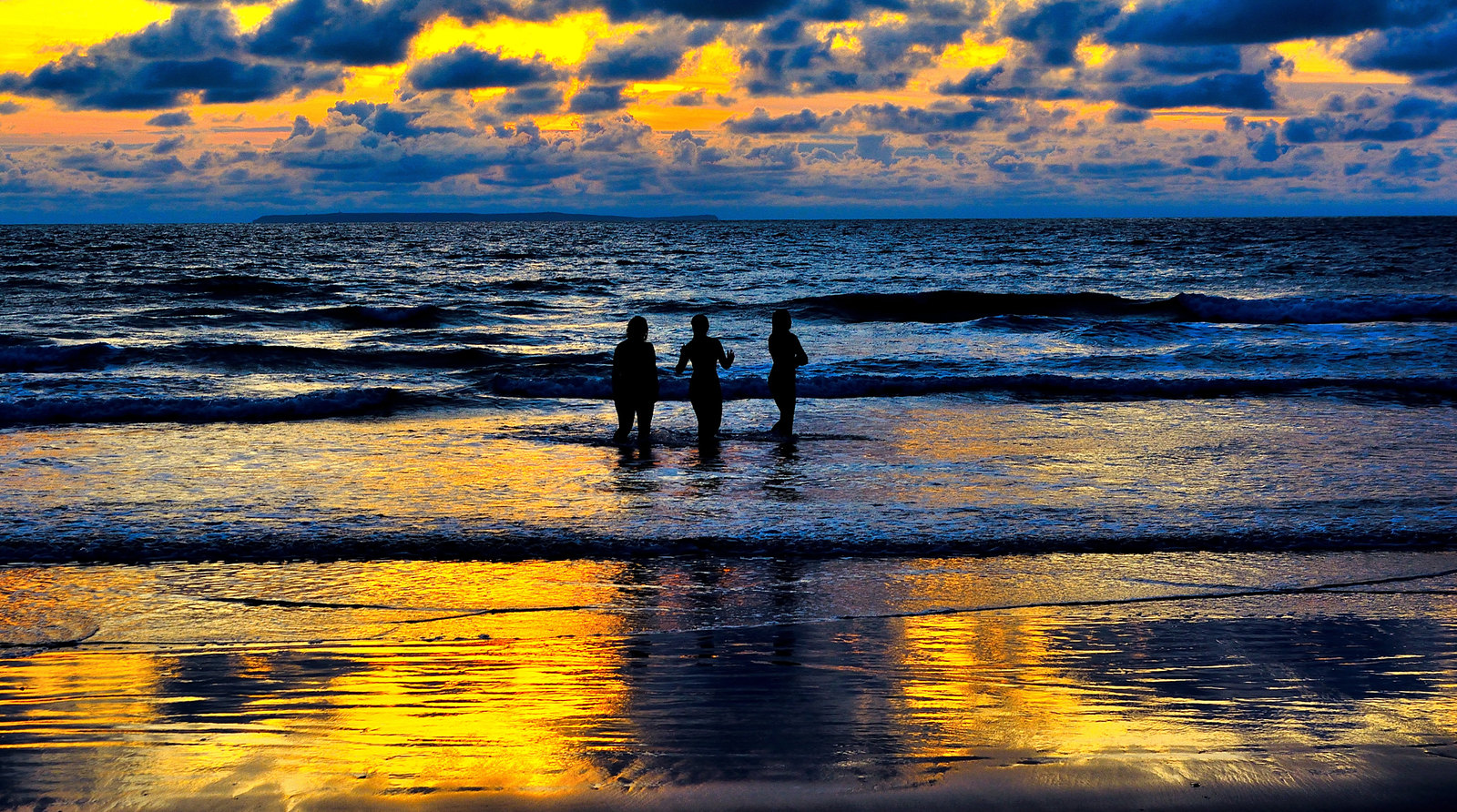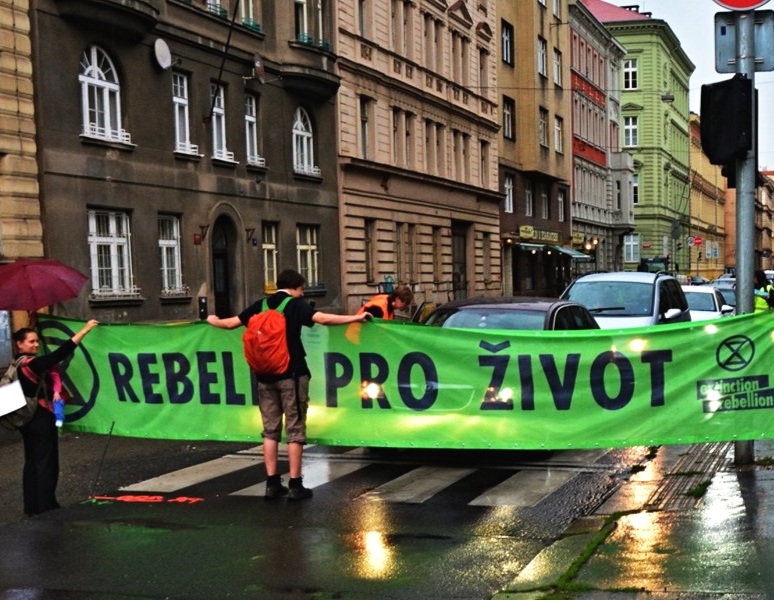That’s the intention. Extinction Rebellion hasn’t distanced from the group of activists who carried out the London subway blockade because the rules of the movement are also real. If someone subscribes to the ten principles of XR, including non-violence, refraining from shaming, mutual support and challenging power structures, they can call themselves Extinction Rebellion. That is what the London subway blockaders did.
But the vast majority of XR members voiced vehement objections to the action. Some simply felt that the movement shouldn’t target reasonably carbon-light transportation alternatives, such as rail transport of any kind. After all, subways and light rail are the kind of things we need to be moving toward, even if Extinction Rebellion refuses to put out exact specifications for solutions.
The movement insists that a people’s assembly—chosen through a jury system, rather than through a heavily financed election—should decide how we move forward to solve the climate crisis. But rail transport is one of the non-controversial assumptions about what that solution will have to entail.
Others have more complex reasons for their complaints. The trains blocked in this particular action happened to come from some of the poorest parts of London, full of immigrants and ethnic minorities on the way to minimum wage jobs with harsh tardiness policies.
Extinction Rebellion is not immune to the accusations leveled at most environmental organizations that it’s a place for middle-class white people to work out their rebellious streak and generalized anxiety. Extinction Rebellion has made an effort since the beginning to keep a permanent focus on inclusion, but this action felt like a slap in the face to a lot of people of color.
One of the ten XR principles is “We accept everyone and every part of everyone.” It’s supposed to be inclusive and the small print talks about inclusion of every kind of vulnerable group. But some people of color have expressed that they don’t feel nice and cozy and safe when they hear this principle. Instead they immediately wonder if the white supremacist parts of some people might be included in that blanket acceptance statement.
There are other principles that point toward inclusion and much of the in-depth but technically non-binding structural documents that make up the DYI systems to set up XR branches in every city around the world go into detail about cultural sensitivity, inclusion and recognizing the different experience with police that people in vulnerable groups may have. Extinction Rebellion tries, but it is still an attempt at sensitivity by a bunch of white people.
“Rebels”. (as XR members call themselves) have employed a popular chant over the past year when police intervene to force an end to a blockade. “Police, we love you! We do this for your children!” has echoed in every English speaking country as well as quite a few where the words are foreign. In Prague, the Czech rebels at our October blockade yelled it in thickly accented English, while police hauled away 130 of our friends, injuring some.
And yet, black people back in the UK, where Extinction Rebellion started, and across the water in the US have said essentially, “Ahem, that’s not going to work for us.” Love just isn’t happening in the relationship between black people and the police in the UK or the US, where random police interactions with black people wind up with way too many black people dead. Most black rebels in these countries are not even sitting on the blockades and getting arrested.
While white rebels risk a night in jail, a fine and a misdemeanor record, black people risk their lives just walking or driving, let alone poking the police bear. It is less that black rebels don’t want to say the chant as it is that it sounds like white people wallowing in white privilege.
Now, after the Autumn Rebellion, many XR groups online and off are tackling the issue of inclusion. I’m glad they are because I see this as the Achille’s heel of this movement, which has achieved a great deal in one short year. If Extinction Rebellion fails to fuel massive public demand for climate justice at every political level, it will be because we fail the inclusion part.
That isn’t just because we should be good people or that we need the numbers that vulnerable groups could provide by joining us. It is most importantly at the core of what has made XR successful so far. We should include people of color, people with disabilities and all the other vulnerable groups not for their sake, but for everyone’s sake. Everyone has some vulnerability and it is when we see those more vulnerable than us truly included that we can fully commit our energy, time and resources to this kind of effort. Inclusion isn’t just for those we shouldn’t exclude.
When it is there, it permeates the entire culture. When it isn’t there, no one is safe, and social interactions are a constant battle of individuals trying to stay in the center of the herd, furthest from exclusion.
Microcosm
When I first joined XR, I was glad to find that no one made much of my disability. They were happy to try to accommodate my vision impairment by letting me know who was who, and I was so grateful to be treated a bit better than the immediate social stereotyping and dismissal that I encounter on a daily basis in society.
But as time went on and more and more people joined XR, I have watched that early focus on inclusion fade and thin. New people often come from a non-activist environment and they bring with them the exclusionist assumptions of the wider society. Those who have been there longer are tired and desperate to reach some kind of tangible goal. Inclusion starts to feel like a luxury we can’t afford.
I have been reticent to write openly about the difficulties I’ve run into with exclusion within XR over the past few months, because i too am focused on the ultimate goal. But the events of recent weeks around the world have convinced me that we must talk about these things openly. Because it is exclusion that will take us down.
It is not a luxury. It’s the heart of the matter.
There may be a few exceptions, but by and large the people who join XR are open-minded and informed. They are people who believe in science enough to put their regular lives on hold and do something about a crisis that for most of us—in white-majority countries at least—is still largely theoretical. They are also demonstrably people who take personal responsibility and eschew laziness, because rather than simply talking about the crisis, they are doing something.
These factors mean that even though XR has people from both the political left and the political right, most are already tolerant, nice people. They don’t think of themselves as racist, ablest or otherwise exclusionist. Many even consider themselves actively anti-racist or anti-ableist. And a lot of them feel like this should be enough.
But as with the London subway blockade and the police chant, it clearly isn’t. For me, as the only significantly disabled person in my local XR group, I have to agree. My group has been wonderful in consciously working to include me. I truly appreciate that, and yet I know that most people with disabilities in my place would have left long ago and I am constantly close to leaving the group myself.
I asked a friend who uses a wheelchair to join and she just laughed ruefully. I couldn’t really argue. The group says they want a person in a wheelchair at the blockades because it would make for good press photos, but no one has ever even mentioned the fact that we’ve never held a meeting in a place that was even remotely wheelchair accessible. They want a person with a wheelchair as a prop, not as an organizer.
There are two categories of issues I can identify that cause me to feel excluded in the group even without the issue of physical accessibility. which given the conditions isn’t really their fault.
First, there is a tolerance for intolerance, as that principle about accepting all parts of everyone implies. While most people are inclusive and welcoming, there are those who are not and the group not only tolerates them but insists that I must tolerate them. If I speak up, even very discretely about exclusion and hate directed toward me, I am told that the urgency of our goal demands that I tolerate it and don’t rock the boat.
Second, there is a lack of understanding about the effects that exclusion in the wider society have had on me and a marked lack of tolerance for any reaction I have to social exclusion.
In one prominent example, a person in a position of power in my group decided early on that she did not like me. Her explanation focused primarily on communication issues, specifically that some of my texts were too long. Being a writer, I can be a bit wordy, but when I can, I go back and edit. Written communication usually isn’t a problem for me.
But in this case, we were using a phone app for daily communication within the group. I can’t type on the tiny phone screen very well because it is too small for me to see, so I was dictating my texts. This meant that my texts were especially long. When we speak, we naturally use more words than when we write. To add to this, editing on my phone in extremely small print is next to impossible for me. Yes, blind people use audio interfaces that make it technically doable but it is excruciatingly slow. Sometimes i do spend literally hours editing a few texts for the group to make things readable. But most of the time, with my work, household, children and all, I didn’t have time. I just dictated texts and sent them, oral vagueness and all.
So, the dislike this person initially developed toward me was based on something that was a symptom of my disability. She is a person steeped in European good manners and social justice thinking. I am certain that she would never intentionally exclude a person over a disability or some other irrelevant trait. But she did—likely obliviously—develop her antipathy for me over something that was part of my disability.
She and the rest of the group chose to call it “a difference in communication styles,” and despite my explanations, refuse to see it as disability related or reconsider her conclusions. When she initially adopted her negative view of me, I was utterly confused. We had, only one day before, had a wonderful conversation in which she told me that I would be working with her closely and expressed a lot of support for my work in the organization. And then suddenly, I was cut off from communications and told that she no longer wanted to work with me.
She later said that my reaction shocked her. After a lifetime of social rejection and even complete isolation for years at a time, I don’t take abrupt, unexplained rejection well. My first reaction was to cry, then to try to defend myself and later to bargain. For so many people with disabilities social rejection is a real visceral danger and I am no exception in that.
It is understandable then that my reaction came across as out-of-proportion and overly pushy to someone who felt she was simply setting some boundaries with an annoying individual who writes overly long texts.
But here’s the thing. After many months of informal exclusion, I was forced to accept an agreement in which we would be sensitive in our communications with each other and I would stay away from powerful roles within the organization in order to minimize contact between me and this person in power. This was the only way i could stay in the group at all.
That may sound like a reasonable compromise, and it did to most of the local XR rebels. But imagine if this had been a black person instead of a person with a disability. Imagine that someone expressed dislike of a black person because of the way they spoke or dressed or some other cultural attribute and started excluding that person. Imagine then—it isn’t hard at all—that the black person got intense and up in that person’s face because they have been excluded and dismissed way too often by white people, and subsequently that the those in power limited the black person to low-level roles as a means to avoid further conflict.
Realistically, most black people—and most people with disabilities—would not get intense. They’d just leave. That is ONE of those reasons that there are so few people from marginalized groups in XR and similar organizations. But it is not at all difficult to imagine this scenario, because like me, some black people stay and fight.
Now, in the scenario with the black person most anti-racist white people are now educated enough to see the problem and to call this exclusion. We aren’t perfect yet and i’m sure this does happen in Extinction Rebellion to black people. But very few abled people are informed enough to see the same situation clearly when the issue is disability. For whatever reason, that’s just the dynamic.
The end result is that, if I want to continue to be part of Extinction Rebellion, I have to constantly bump up against the antagonistic walls set for me, where I am not allowed to take on national roles in the group. And I have to constantly see the XR messages urging us to put people from marginalized groups in positions of power and to feel their hypocrisy.
There are a very few people of color in our local group as well and none of them have significant roles. I don’t know them well enough to discuss the reasons why personally. But the fact is that our group has the option of putting people with disabilities or people of color in visible and/or powerful roles and it doesn’t. In fact, it has barred a person with a disability from national roles, based on symptoms of the disability and post-traumatic responses to social exclusion.
We’ve got a problem.
And I—like many other rebels from marginalized groups—now have to decide day by day if I stay and fight for the soul of this movement I believe holds our best chance for the future or if I let it go and take care of myself.




















